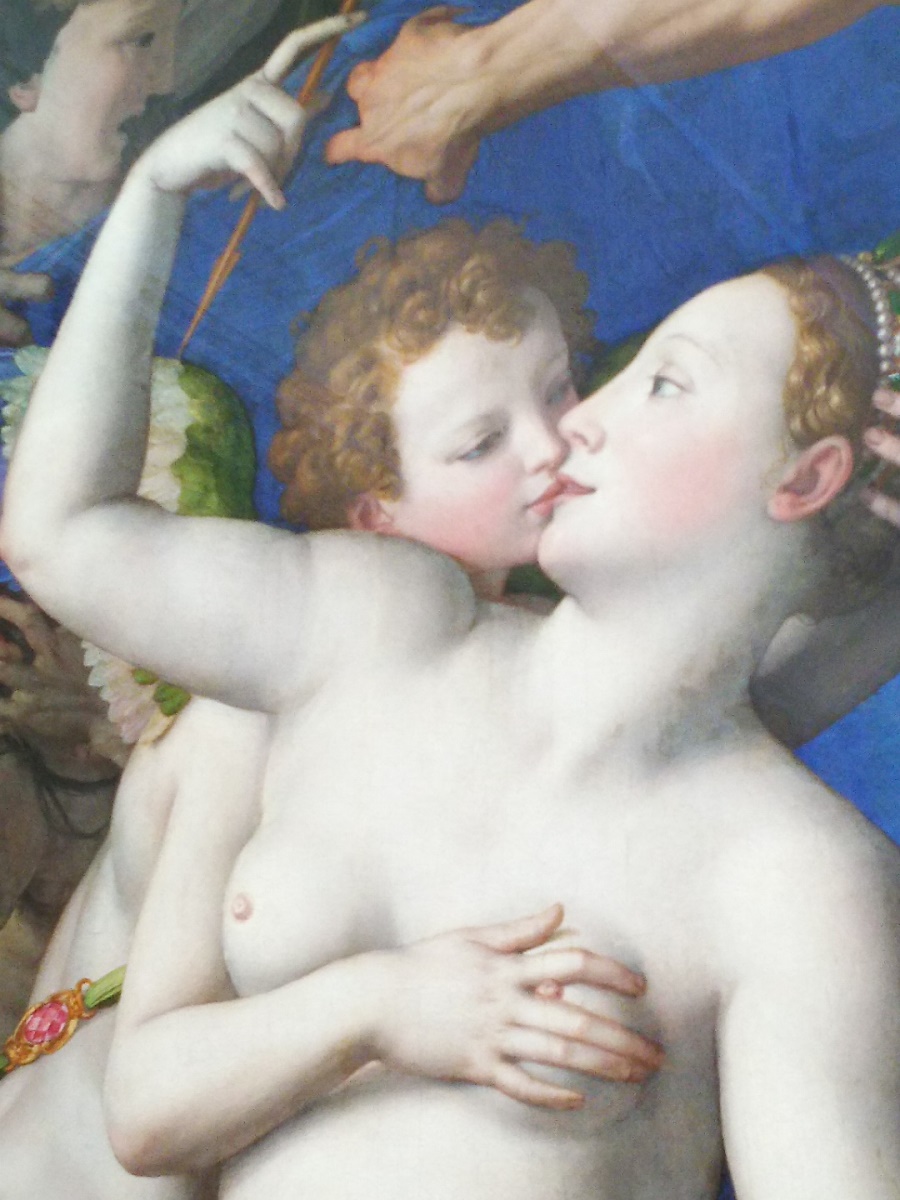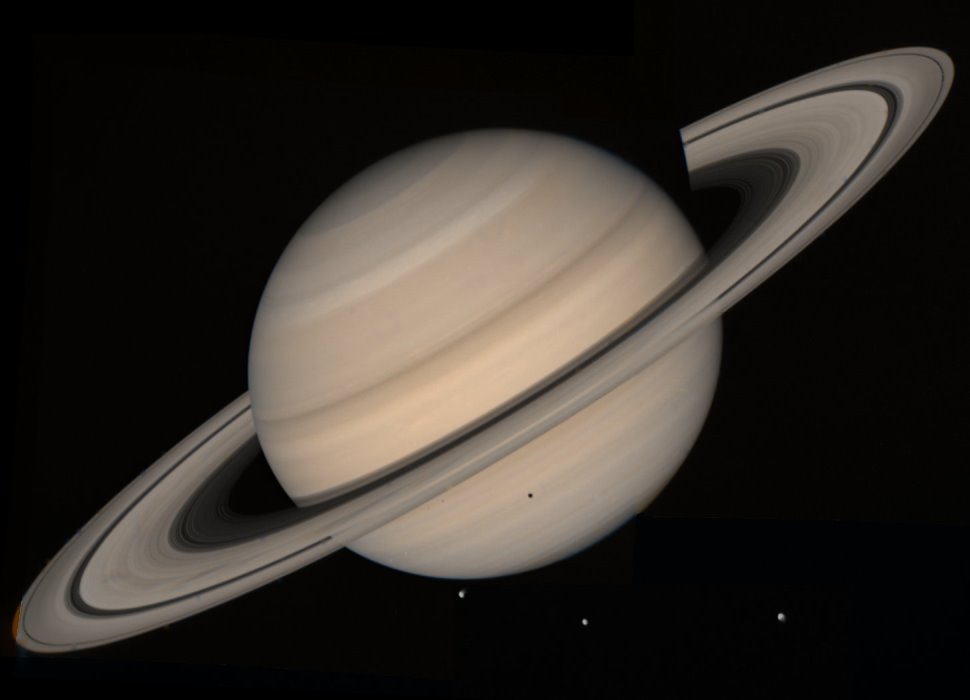エロスのため息 ~恋の形而上学(2)
雨の日の金曜日の午後。 偶然カフェで再会した、アストロロジャー(ビータ)と生徒(シルビー)の対話。人は人を愛する時に、何を求めているのか。相手の中の何を見ているのか。「プラトニック・ラブ」という言葉を生んだ15世紀のプラトン学者マルシリオ・フィチーノの思想と彼のチャートをもとに、2人は愛について語り合う。
ダービー・コステロ著 咲耶まゆみ訳
By Darby Costello Translated by Mayumi Sakuya
English text to follow.
シ:ええ、そうね。太陽は蠍座に、火星は山羊座にある。「パワフルに」、「ハングリーに」、「容赦なく」、人生から満足を求め、かなり「セクシャル」でもある。女性性の天体の月と金星は、両方とも地のサインだけど、2つとも山羊座と乙女座の、より「自制的な」サインよね。だから、マルシリオは、母方からは、山羊座の月を通して自制的な情緒的な気質を、そして、乙女座の金星を通して、奉仕や親切さを認められたいという欲求を受け継いだのね。これらをすべてまとめると、厳しくて、きつい気質、生まれながらにして、自己抑制、自己統制の傾向があり、そして、もちろん、禁欲であることが示される。蠍座は、人間の基本本能を、ある領域において力を手にするような才能に変容させたり、向かわせたりすることで知られているんじゃなかったでしたっけ?
ビ:ええ。これらの気質は、アスペクトとハウスの配置を通して深められている。彼の蠍座の太陽は、9ハウスにあって、水瓶座のアセンダント上の土星とスクエア。彼の乙女座の金星は、ちょうど8ハウスに入ろうとしているし、12ハウスの火星とトラインね。
シ:そうですね。その土星には気が付きました。水瓶座上昇点上にありますね。マルシリオが人生に対して理想主義的なアプローチをとること、そして自分の理想を体現しようとする彼の欲求。先生は、チャートの個人の性格を見るときは、古いルーラーシップを使われることを思い出しました。その土星(水瓶座のルーラー)もまた、彼と彼の身体との気まずい関係も表しているに違いないわ。最も居心地の悪いと同時に、最も自己成長をもたらすという意味での、深い自意識ね。彼の太陽に対する困難なアスペクトのスクエアは、目標を達成するために、彼は相当の努力が必要だったと示唆していますね。太陽が9ハウスにあったから、自分の哲学を実現するための苦労とも言えるかしら?
ビ:そうね。情熱的な蠍座の人生から、哲学者の山頂から見下ろすような意識に達するために。覚えているかしら、9ハウスの旅路のより高い目標は、それが身体であれ、心であれ、想像力であれ、哲学的な目標なのよ。つまり、時空の中で、私たちが目にする、常に変わりゆくパターンに、永遠の真理と意味を見つけることなの。だから、土星がルーラーのアセンダントが彼の9ハウスにある太陽とスクエアをしていることは、この目標を達成するために、非常に苦労したことを示している。マルシリオは、水瓶座にある彼の土星の高い理想を、人の手本になることによって体現する必要があった。そして、彼自身の生来の情熱的な気質を英知に変容させる必要もあった。
彼の太陽は、蟹座の冥王星とのトラインでまた強められている。この冥王星は、11ハウスの山羊座の月とオポジションね。たから、真の哲学者と教育者に変容していくという目標に向かっていきながら、様々な集団と彼等のねらいと猛烈な遭遇もあったことでしょうね。当時、冥王星はまだ発見されていなかったけど、死と再生の神は、彼の、自分の気質から脱したいという衝動を密かに促していたのね。何か深いものを実現するために、彼自身の気質を死なせることで。もちろん、冥王星と月のオポジションは、情緒的なふれあいが親密になりすぎると、息苦しさを感じやすくなることも示しているわね。でも、マルシリオの性格の強烈さも、人に窮屈さも感じさせるような場面も作ったことでしょう。彼の8ハウスのカスプ上にある金星が、そのテーマを繰り返しているわね。愛されたい、愛する者の目に映りたい、という激しい欲求。これは、犠牲的な12ハウスの中で隠れている、山羊座にある地のエネルギーの火星によって、さらに煽られている。
シ:犠牲。それは、彼のストーリーの重要な点ですか。もし、彼の火星が、先生がおっしゃたように、12ハウスに隠れているのであれば、彼の欲求を犠牲にする傾向があったのかしら?もしかしたら、決して恋に落ちないようにしたとか! もしかしたら、禁欲の方が彼にとっては楽だったのかも。
ビ:忘れてはならないのは、彼の太陽は蠍座だということ。私は、デーン・ルディア先生の蠍座の説明が気に入っているの。先生は、蠍座の本質は、「有機的な統一体になるために、他の個人と絶対的な結びつきの中に融合したい、という個人の欲求である」と言っているわ。それは、蠍座は、それがのちに何に変容するかに関わらず、まずはセックス第一である、ということを別の言い方で表している。先生は、また、「蠍座は、単純に生殖的なセックスではなく、『忘我と、他者を通じて大いなる全て、そして神でさえともつながりたいという切望、神秘的なセックス』と説明している。これは、単純でも、その通りの意味での気質ではないの。でも、このチャートの中に、もう一つ知っておきたい要素があるの。それはね。。。
シ:きっと木星ね!まだ木星について触れていませんよね。今のところ、全てがあまりにも困難で、暗くて、大変な気質ですよね。マルシリオの木星はどこでしたっけ?どこに救済があったのかしら?
ビ:分かっているわね。彼の木星は獅子座。「他者のハウス」の7ハウスね。私たちの一部を与えて、他者の中にそれを見つけ出すハウス。彼の獅子座の木星は土星とオポジションだったわね。
シ:だから、マルシリオは、自分の輝く、高貴なアポロの部分を手放して、厳しいタスクマスターの土星をとったわけですね。
ビ:その通り。マルシリオは、彼自身の一部である、最高で、最も幸せな自分を他者の中に見て、自分は土星と同一化した。実際、友人のアマルフィ大司教に宛てた手紙で、このように書いているわ。
「君は予言した。ヨベ(木星のこと)の星のもとに生まれた誰かとの甘い交際によって、生まれ持った星が私にもたらした、あるいは哲学がもたらした、幾分厳しい土星的な要素を徐々に緩和させていくために、朗らかな誰かと人生を共にすることを、私が望んでいることを」
シ:獅子座で海王星と木星が合ね。彼が「高潔」と思った人には、強く惹かれたでしょうね。きっと神のように見えたんじゃないかな。辛かったでしょうね。他者との神秘的な結合を求める、地のセクシャルな気質をもった、情熱的な蠍座ですもの。彼は、これらをどうしたんですか? 「プラトニック・ラブ」には、どのように行き着いたんですか?
ビ:この言葉が最初に出てくるのは、古代ギリシャ哲学者のプラトンに対する情熱を分かち合った友人のアラマンノ・ドナーテイに宛てた手紙の中なの。
「僕たちの友情は、どんな友情と言ったらよいだろう、ああ、アラマンノよ。始まりから、プラトニック・ラブ以外の何物でもなかった。他ならぬプラトニックと呼ばねばならぬ」
後に同じ友人に宛てた手紙には、こう書いているわ。「美徳の炎で燃え、天体の光線で強まっていく神聖なこのような愛は、地上の病の恐れによって苦しめられることのない、 天の崇高な高みへと戻ることを求めている」
シ:わかるわ。きっと、二人ともプラトンを愛読するうちに、哲学の背景に見えてくる男性を愛するようになったんじゃないかしら。マルシリオは、プラトン自身の、最良で、最も崇高な愛に対する考え方から「プラトニック・ラブ」の概念を得たんだわ。そして、それに彼の友人に対する気持ちに当てはめたのね。でも、ある意味においては、この男性はマルシリオの恋人だったんでしょうか?
ビ:マルシリオは、どんな意味の「恋人同士」だったかは、一度も語っていないの。でも、全てが彼の純潔な人生を指し示している。彼は、このアラマンノに対する深い想いを表現する方法を探し求めていたようね。そして、これが彼の方法だったのね。もしかしたら、性的な感情もあったかもしれない。でも、マルシリオは、自分の気持ち自体が表現される別の道を求めていた。
もう一人の男性は、マルシリオの苦悩と変容のもっと中心にいたの。この人の名前は、ジオバンニ・カバルキャンティ。マルシリオが、彼に会ったのは、1468年頃。コシモの孫のロレンゾ・デ・メディッチに、カレッジにある別荘を与えられた5,6年後ね。これ、聞いて。
「自分の病んだ体と父親の世話は、重荷だ。君がいないことも。両者とも、平穏さをもって耐えねばならない。さもなくば、苛立ちによってさらに重荷になるから」
美しい場所で、大好きな仕事をしていたにもかかわらず、マルシリオは、この時はまだ苦しんでいた。私は、それは、全く解決をもたらすようには見えない、彼の切なる想い、彼のひたむきな性格のせいだと思うわ。彼は、当時のスピリチュアルな人間だった。キリスト教は、生殖以外の目的とする身体の欲求は認めようとしなかった。キリスト教のさらに上にある目的は、精神の開放と関係していた。彼は、この仕来たりは、彼自身の複雑な気質に上手くマッチすると思ったわけね。彼の作品「デ・アモーレ」に、こう書いている。
「性行為の狂気は不摂生につながり、不調和をもたらす。従って、同様に、醜さにもつながるようだ。一方で、愛は美につながる。醜さと美は相反するものだ。従って、それらに我々を導く行為は、互いに反するものだ。従って、性行為に対する欲求と愛は、同じ行為ではなく、相反するものである」
でも、また、ここでプラトンの考え方が聞こえ始める。
「幻から至福へと招かれ、接触の泥沼に飛び込んでしまう人は、狂っていると同時に、惨めであると考えられる(べきだ)。人は人間の美しさを通して神聖なものに想いを馳せることによって神になれる(ように思える)かもしれないが、(実際は、)人は、真の精神的な美しさよりも、形あるものの物質的な影を好んでしまうことによって獣に戻ってしまうのだ」
最後の一節は、実際、カバルキャンティに宛てたものなの。別荘に引っ越して、プラトンの翻訳を始めた年だった。そして、この年は、彼のサタン・リターンの年。その後7年間(ワクシング・スクエアの時まで)は、彼の手紙やチャートから、自身の気質でかなり苦労したことが伺える。
シ:以前、先生はサタン・リターンを、「今世でやるべき仕事に対して責任を取るよう、求められるか、指示される時だ」とおっしゃってましたね。後の7年間でその仕事が開かれていったんでしょうね。
ビ:そうなの。そして、その7年間が過ぎた後、あることが起きたの。1469年には、マルシリオは35歳になっていた。土星は牡牛座。もちろん、金星がルーラーね。彼の蠍座太陽とオポジションで、彼の居心地の悪い、理想主義を体現した、水瓶座アセンダント上の土星とスクエア。さらには、対人関係のハウスにある彼のロマンチックな木星(と海王星)とスクエア。何かが変わった。牡牛座に土星が入るときは、その人の愛に関することに取り組む必要がある。さらに、彼は各天体の高いレベルの意味に敏感だったから、自身の愛の気質を簡素化するために、本当に努力したの。もちろん、土星は彼の月と金星とトラインではあったから、努力と優美さをもって自分の通るべき道を見つけたの。その結果が、「デ・アモーレ」。プラトンの「饗宴(プラトンの中期対話篇の1つ。副題は「恋について)」の解釈書よ。
「エロスのため息~恋の形而上学(3)」に続く
Remembering Eros (2)
A Ficinian Response to Love in the Nineties: A Dialogue between an Astrologer and a Student
S: Yes I see… The Sun in Scorpio and Mars in Capricorn – ‘powerful’, ‘hungry’ and ‘unrelenting’ in seeking satisfaction from life, and highly ‘sexual’. The feminine planets, Moon and Venus, both in earth, but in the two more ‘self-controlling’ signs of Capricorn and Virgo. So he inherited his mother’s controlled and controlling emotional nature through the Moon in Capricorn, and her desire to be valued for her service and her goodness through her Venus in Virgo. All of this together could have indicated a harsh and demanding nature, intensely controlled, naturally inclined to self-repression and self-control and, of course, sexual abstinence. Isn’t it true that Scorpios are known for transforming or rechannelling their basic human instincts into talents which win them power on one plane or another?
V: Yes, and these traits are deepened through the aspects and house positions. His Scorpio Sun is in the ninth house square Saturn on the ascendent in Aquarius. His Venus in Virgo was just entering his eighth house, trine to Mars in the 12th.
S: Yes, I noticed that Saturn: on the ascendent in Aquarius – his idealistic approach to life, and his need to embody his ideals. I remember you prefer to use the old rulerships when looking at the personal character in the chart. That Saturn placement must also indicate an awkward relationship to his body, a deep self-consciousness in the most uncomfortable sense, as well as in the most self-developing sense. The struggling, square aspect to his Sun suggests he had to work very hard to achieve his goals. As his Sun was in the ninth house, could you say it was a struggle to achieve his own philosophy?
V: Yes – to achieve the mountain-top awareness of the philosopher from living his passionate Scorpio life. If you remember, the higher goal of the ninth house journeys, whether they be of the body or the mind and imagination, is the goal of philosophy – to find eternal truths and meaning in the constantly shifting patterns that we see in time and space. And so the Saturnian ascendent squaring his ninth-house Sun indicates a great struggle to achieve this goal. He had to embody his high ideal of Saturn in Aquarius, standing as an example to others, and he had to transform his own, given passionate nature into wisdom.
His Sun was also strengthened by the trine to Pluto in Cancer, which was opposite his Moon in Capricorn in the eleventh house. So in driving towards his goal of achieving his aim of transformation into true philosopher and educator, he came into intense encounters with various groups and their aims too. Even though Pluto had not been discovered yet, this Lord of Death and Rebirth was secretly facilitating his urge to break through his own nature – to die to his own nature in order to achieve something profound. Of course, the opposition of Pluto to his Moon shows us how easily he could feel suffocated by too close an emotional contact, and yet his personal intensity created situations with people which must have been in themselves claustrophobic. His Venus on the cusp of the eighth house repeats that theme – intense desire to be loved, to be mirrored in the beloved’s eyes. This is enflamed further by the earthy Mars in Capricorn, hidden away in the sacrificial twelfth house.
S: Sacrifice. Is that the key to his story? If his Mars was, as you say, hidden away in the twelfth house, was he inclined then, to sacrifice his desires? Perhaps he never let himself fall in love at all! Perhaps celibacy was easy for him.
V: Remember, he was a Scorpio Sun. I like Dane Rudhyar’s description of Scorpio: he says that their essential character is “the urge in the individual to merge in absolute union with other individuals in order to constitute together a greater organic whole.” *1. That is one way of saying that Scorpio is about sex first, no matter what it later transforms itself into. He also says it’s not simply that Scorpio is about procreative sex but about “mystical sex… which is a yearning for self-forgetfulness and union through another with a greater whole, and even with ‘God’”.*2 This is not a simple or straightforward nature. But there’s one other factor in this chart that you must know – and that is…
S: It must be Jupiter! We’ve not mentioned Jupiter. Everything is so difficult and dark and struggling in his nature so far. Where was his Jupiter? Where was relief?
V: You have the key. His Jupiter was in Leo, in the seventh house – the house of ‘the other’ – the house where we give away parts of ourselves and look for them in others. And his Jupiter in Leo was in opposition to Saturn.
S: And so he gave away the shining, royal Apollonian part of himself and kept the harsh taskmaster, Saturn.
V: Precisely. He saw in others the best and happiest part of himself and identified with Saturn. In fact, he said in a letter to his friend, the Archbishop of Amalfi:
You have divined, I think, how much I have wanted to live my life with someone of a Jovial nature, so that something of a bitter, and as I might say, Saturnine element, which either my natal star has bestowed on me or which philosophy has added, might eventually be alleviated by the sweet fellowship of someone born under Jove.’*3
S: I see that Neptune is conjunct his Jupiter in Leo. He must have fallen in a big way for those he saw as ‘noble’. He must have seen them as gods. How painful it must have been for him – a passionate Scorpio with an earthy sexual nature longing for mystical union with another. What did he do with all of this? And how did it get him to Platonic Love?
V: The phrase itself first appears in a letter he wrote to his friend, Alamanno Donati, with whom he shared a passion for Plato:
What kind of friendship will ours be called, oh Alamanno? since it began from nothing else than from Platonic love, we must call it nothing less than Platonic.. .*4
In a later letter to this same friend he wrote that ‘such a divine love kindled by the flames of the virtues and growing strong from celestial rays, seeks to return to the sublime heights of heaven which no fear of earthly ills can ever trouble.’*5
S: I understand. They must have both loved reading Plato and must have come to love the man that they perceived behind the philosophy. He took his conception of ‘Platonic Love’ from Plato’s own notions of the best and highest forms of love and then applied it to his feelings for his friend.. But was this man his lover, in any sense?
V: He never tells us in what sense they were ‘lovers’, but everything points to his own life of chastity. He seems to have been searching for ways to express the deep feelings he had for this Alamanno – and this was his way. Perhaps there was sexual feeling in it, but he was seeking another route through which his feelings could express themselves.
Another man was even more central to his struggle and transformation. His name was Giovanni Cavalcanti, and Ficino met him around 1468, five or six years after he was given the Villa in Careggi by Cosimo’s grandson, Lorenzo de’ Medici. We know how much he felt for this man by many of the things he wrote to him. Listen to this:
The care of my own sick body and that of my father is one burden for me. Your absence is another. Both must be borne with equanimity, lest they become more burdensome through impatience.’*6
Even though he was doing work that he loved in a place that was beautiful, he was still tormented during these years, and I think it was because of this terrible longing, his passionate nature, which seemed to have no resolution. He was a spiritual man of his times, and Christianity has always rejected the body’s urges, other than procreation. Its higher aim had to do with the release of the spirit, and this tradition he found very compatible with his own complex nature. In his De Amore, for example, he writes:
Venereal madness leads to intemperance, and therefore to disharmony. Therefore it likewise seems to lead to ugliness, whereas love leads to beauty. Ugliness and beauty are opposites; therefore any motions which carry us to them seem to be opposite to each other. Therefore the desire for coitus (that is, for copulation) and love are shown to be not only the same motions but opposites.”*7
And again, but here we begin to hear Plato’s mind:
a man [must] be considered mad as well as miserable, who whilst called to the sublime through vision, plunges himself into the mire through touch. Although he could become God instead of man by contemplating the divine through human beauty, from man he returns to beast by preferring the physical shadow of form to true spiritual beauty.*8
This last passage was actually written to Cavalcanti. From the year he moved into the villa and began translating Plato – and this was the year of his Saturn Return – until seven years later (the time of the waxing square) – his letters, and his chart, show that he was struggling mightily with his own nature.
S: You once described the Saturn Return as the time in which we are asked, or told, to take responsibility for the work we have to do in this life. The following seven years must be the opening up of that work.
V: Yes. And at the end of those seven years something happened. In 1469 he was 35 and Saturn was in Taurus; Venus ruled of course. While it was sitting opposite his Scorpio Sun and square to his awkward, idealistic embodied Saturn-in-Aquarius-on-the-ascendent and also square his romantic Jupiter (and Neptune) in the house of relationship – something changed. Saturn in Taurus tells us of the work he had to accomplish on his love nature. Whenever Saturn is in Taurus there is work to be done on one’s love nature, and as he was sensitive to the higher notes of each planet’s field of meaning, he really worked to simplify his love nature. Of course, Saturn was trine his Moon and Venus, during this time and so through grace as well as work – he found his way through. And De Amore, his commentary of Plato’s Symposium, was the result.
Continue to “Remembering Eros (3)”
*1. Dane Rudhyar, The Pulse of Life (Philadelphia, David McKay Co. 1943),
*2. ibid
*3. Ficino, Letter,. Translated by members of the language department of the School of Economic Science. 4 volumes. (London, Shepherd-Walwyn 1988) Vol.4, No.45
*4. M. Ficino, Opera Omnia (Basil, 1576) ~6
*5. M. Ficino, Letter’, op. cit. Vol. 4, No.15
*6. M. Ficino, Letter,’, op. cit. Vol.1. (1975) No.35
*7. M. Ficino, De Amore. Commentary on Plato~ Symposium on Love (Dallas, Spring Publications, Inc. 19851, 41
*8. M. Ficino, Letter’ op. cit. Vol.1. No.42
関連記事
Submit your review | |




